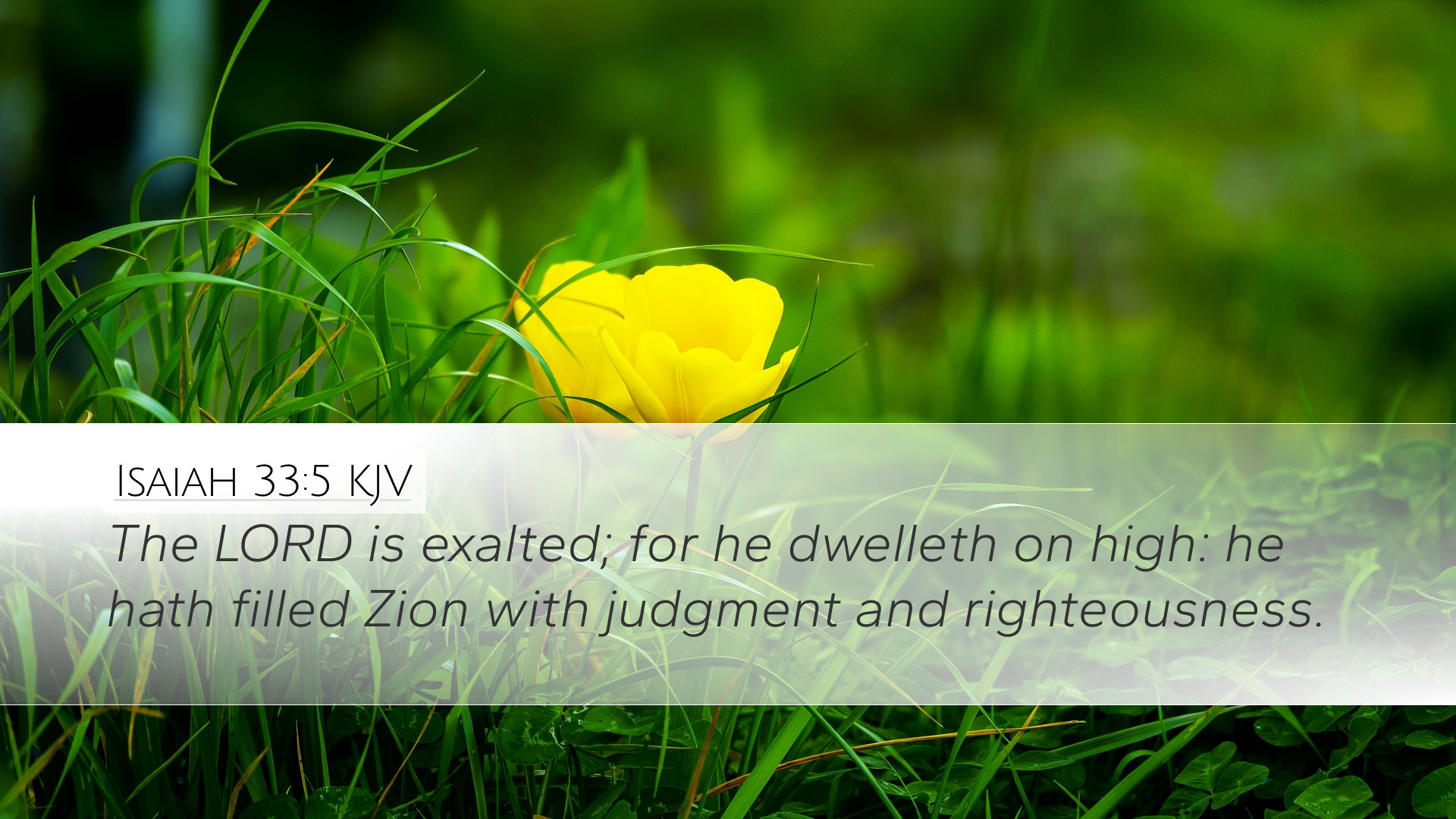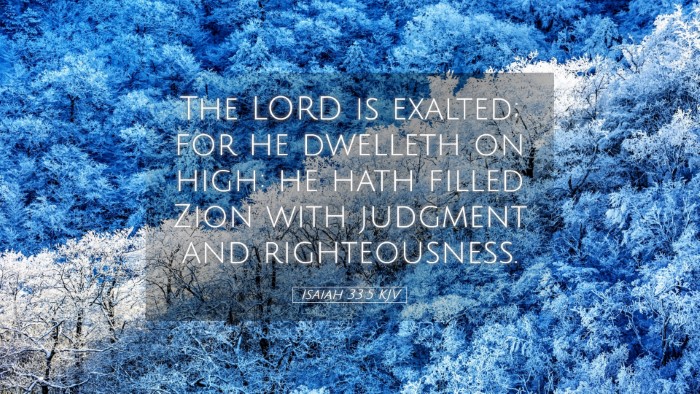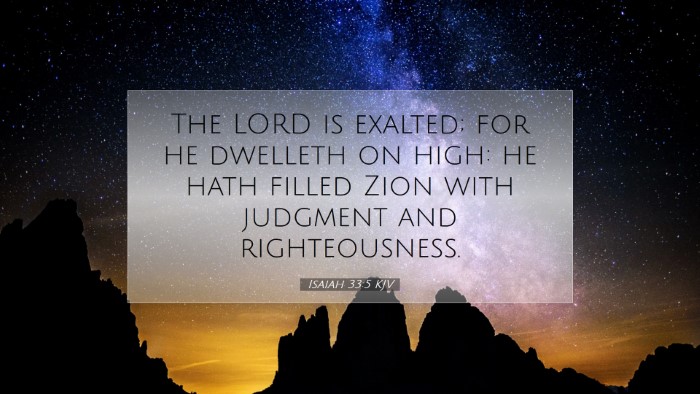Commentary on Isaiah 33:5
Verse: “The Lord is exalted; for he dwelleth on high: he hath filled Zion with judgment and righteousness.” (Isaiah 33:5)
Introduction
The profound declaration in Isaiah 33:5 unveils the nature of God's sovereignty and His active role in governance, particularly over His people in Zion. This verse encapsulates the essential qualities of God—His exaltation, holiness, justice, and righteousness—as interpreted through several notable public domain commentaries.
The Exaltation of the Lord
Matthew Henry observes that the phrase “The Lord is exalted” signifies that God is lifted above all earthly powers and principalities, emphasizing His supreme authority. This exaltation is not merely a position of power but a demonstration of God’s control and oversight of the cosmos.
Furthermore, Albert Barnes highlights that God's exaltation also serves as a source of comfort for His people. In times of distress, the assurance that God is sovereign and high above all conflicts provides a foundation for faith and confidence.
God Dwelling on High
The statement “he dwelleth on high” speaks to the transcendence of God. Adam Clarke explains that this indicates both His heavenly abode and His spiritual majesty. God resides in a place of divine purity and authority, which distinguishes Him from the earthly realm.
This lofty position encourages believers to aspire to holiness, reflecting God's character in their own lives. Clarke notes that understanding God’s high place prompts humility and reverence among God's people, invoking a desire to align one's life with divine standards.
Filled with Judgment and Righteousness
The latter part of the verse, "he hath filled Zion with judgment and righteousness," encapsulates God's active engagement with His people through justice and moral integrity. Matthew Henry articulates that this filling of Zion with judgment refers to God's establishment of a moral order that assures fairness and equity among His people.
Moreover, Albert Barnes emphasizes that judgment here signifies God's commitment to uphold justice, ensuring that wrongdoings do not go unpunished while righteousness denotes the divine standard upon which judgment is rendered. This duality serves as both a warning and an encouragement to the people of Israel.
Theological Implications
The combination of judgment and righteousness reveals a fundamental attribute of God: His holistic nature in governance. As Adam Clarke asserts, God's justice is not arbitrary; it is fundamentally linked to His righteousness. This means that every act of judgment is rooted in perfect moral integrity, a concept crucial for pastoral teaching and scholarship.
For theologians, this verse highlights the interaction between God’s holiness and His justice, establishing a framework within which believers can understand God's actions in history, particularly during times of national crisis or judgment. It reassures them that God remains active in ensuring that His commandments and statutes are faithfully executed.
Applications for Believers Today
The multifaceted nature of this verse offers rich applications for modern believers:
- Encouragement in Leadership: Pastors can derive comfort that even amidst chaos, God’s sovereignty prevails, thus empowering them to lead their congregations with confidence.
- Call to Holiness: The call to reflect God's righteousness amidst a world that often embraces injustice is a vital role for Christians today, urging them to be instruments of justice and moral integrity.
- Understanding Divine Sovereignty: The affirmation of God’s exaltation reassures believers of His ultimate control over their lives and historical events, inviting them to trust in His unfolding plan.
- Focus on Justice and Mercy: This verse compels believers to adopt a holistic view of justice, one that is consistent with God's standards of righteousness, serving as a guide in their social and ethical conduct.
Conclusion
Isaiah 33:5 serves as a powerful reminder of God’s supreme sovereignty, justice, and righteousness. Through the thoughts of esteemed commentators like Matthew Henry, Albert Barnes, and Adam Clarke, we understand that God's exalted position does not distance Him from humanity; rather, it equips Him to deliver justice effectively while guiding His people in righteousness.
This verse inspires believers to embody these divine characteristics, fostering a community reflective of God’s kingdom on earth. Such reflection invites not only personal transformation but also a collective movement towards justice and righteousness within society.


